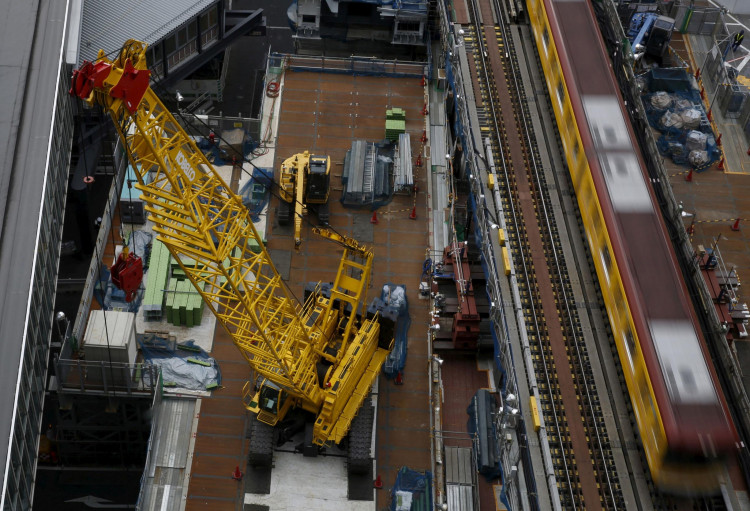Japan's economy plunged 6.4 percent in the October to December period -- its worst drop since a 7.5 percent crash in the April to June quarter in 2014 -- as a result of a sales tax hike and a destructive tornado that wreaked havoc on the world's third biggest economy.
The country's gross domestic product in the quarter to December fell 1.5 percent compared to the previous period, even before the global financial turmoil hit Tokyo, official figures released late on Monday, showed.
Sluggish growth in Japan's inflation revised GDP for the current quarter coincided to a 1.7 percent slide from the previous period, the Cabinet Office disclosed.
The initial data was substantially worse compared to the average outlook of 3.8 percent narrowing noted by private sector economists surveyed by Kyodo News, after a yearly 1.8 percent expansion in the July to September quarter.
The quarter was highlighted by an increase in consumer tax from 8 percent to 10 percent, as well as Typhoon Hagibis, which claimed the lives of over 100 people and left widespread devastation in the country.
Economists were anticipating a contraction of approximately one percent but had not seen such a dismal figure, with Takeshi Minami, head economist of Norinchukin Research Institute, stating the number was "an undershooting".
Weak production and shipments and warm temperatures were also factors that weakened consumer demand for items like winter clothing and heating appliances. A "slight economic rebound," Minami said, has continued despite the weak data.
However, Minami noted that capital expenditure, another major element of local demand, as well as private residential investment, dropped 3.8 percent and 2.8 percent, respectively.
Expenditure on factories and machinery were down 3.8 percent despite investment being buoyed by cashless-payment systems that allow consumers to ease consumption tax burdens. Exports edged down as well at 0.1 percent and imports retreated 2.7 percent.
However, Naoya Oshikubo, senior economist at SuMi Trust, predicted the new coronavirus outbreak would not impede recovery in the first quarter of 2020.
Going forward, economists say the country should be able to see robust growth in the coming months, and even beyond, expecting external demand to continue to improve in the first half of the year. Local consumption, on the other hand, should stabilize as the effects of the higher consumption tax wanes, the economists added.
In addition, with the Tokyo Olympics just around the corner, Minami said they will undoubtedly see a substantial amount of positive economic impact of the Games for the Japanese economy.






